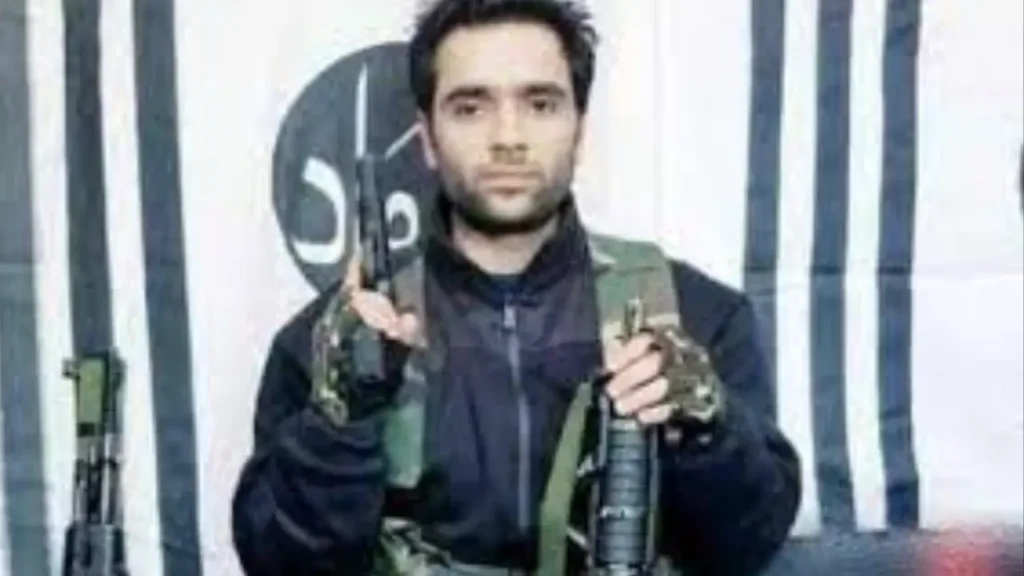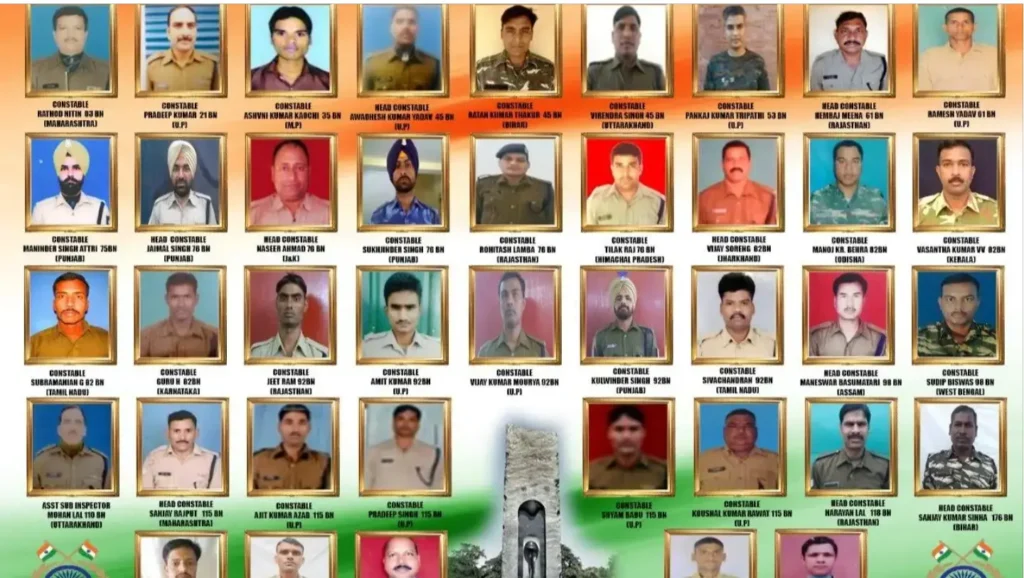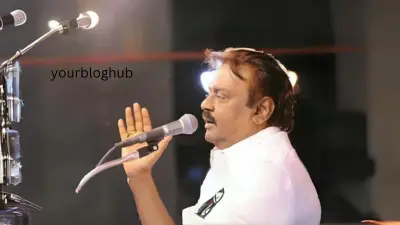14th February Black Day: This day commemorates the 5th anniversary of one of the deadliest terror attacks on India’s security forces, which happened in the Jammu and Kashmir area of Pulwama and claimed the lives of at least 40 members of the Central Reserve Police Force (CRPF).
Due to the incident that brought the nation to a halt when a suicide bomber from Jaish-e-Mohammed (JeM) crashed a car packed with explosives into a CRPF convoy, India also refers to February 14 as “black day.”
What happened that day in Pulwama?
Adil Ahmad Dar drove an explosives-filled car into a convoy of 78 buses transporting Indian paramilitary police in Pulwama on the heavily guarded Srinagar-Jammu highway on February 14, at approximately 15:15 local time (09:45 GMT).
It was the most catastrophic onslaught against Indian forces in decades.
Newspapers and TV screens were flooded with accounts of troops and their broken families, shocking the nation. Before the attack, some had phoned a family member, some had just returned from a visit, and some were even talking to them on the phone when the explosives detonated.
A few hours later, Adil Ahmad Dar was recognized when the extremist group Jaish-e-Mohammad, which is located in Pakistan, uploaded a video to their website claiming responsibility for the attack. Dar doesn’t seem to be regretting what he is going to do in the video.
He claimed that after joining the group in 2018, he was ultimately “assigned” the responsibility of carrying out the Pulwama operation.
He predicted that he would be in Jannat (heaven) by the time the video was released.
More information about Dar surfaced as tensions between Pakistan and India, two nuclear-armed nations, increased in the wake of the attack and Kashmir remained tense. His tale seemed uncannily familiar.

He was raised in the Pulwama district of Indian-administered Kashmir, the scene of the attack. Pulwama is a component of the Anantnag constituency, which is the only seat in the Indian election that will have three separate phases of voting, the final one being held on May 6, due to security concerns.
When his parents filed a missing person’s report for him in March of last year, Dar had dropped out of high school and was working odd jobs as a mason.
He was twenty-two and quiet and reserved by all accounts. According to his relatives, he became increasingly enraged with the Indian government after sustaining injuries during a protest in 2016 over the assassination of a well-known terrorist.
Dar was one of hundreds of Kashmiris who were raised under the gun’s shadow and eventually perished in it.
Since 1989, there has been an armed uprising against Indian control in Kashmir, a region with a majority of Muslims. India accuses Pakistan of encouraging militancy in the area and inciting violence;
Pakistan refutes this claim. Over 70,000 individuals have died in Kashmir’s recurring violent events since 1989, majority of whom were Kashmiri Hindus who were the focus of militants in the early 1990s.
Indian practices, according to critics, have alienated young people in the area. According to a UN assessment, Indian security forces used excessive force, including shooting pellet guns at people, blinding hundreds of people in the area between June 2016 and April 2018. India disagreed with the report’s conclusions.
“Those who were born in Kashmir after the 1990s have never experienced peace,” claims 68-year-old Pulwama resident Abdul Ahad Bhat. “They were born amid curfews and died before they ended.”
According to Mr. Bhat, the Kashmir he knew prior to 1989 is a “dream” that has been denied to this generation.
After a downturn in the 2000s, the valley saw a resurgence of militant activity following the 2016 assassination of teenage militant commander Burhan Wani. And since then, it has been getting worse. According to official statistics, 150 suspected militants killed in 2016 and over 230 died in 2018.
Wani used social media very frequently. While many people saw him as a symbol of the new Kashmiri generation, India saw him as a terrorist. Protests swept the valley when he was murdered in a gunfight with Indian security forces.
Security forces fired tear gas and live shots at protesters, resulting in hundreds of injuries and many deaths. Pellets also caused blindness in many. Participating in the protests, Adil Ahmad Dar was wounded in the leg and spent eleven months in bed.
According to his father, Ghulam Hassan Dar, 62, “that day changed him.” “A shy boy transformed into a volcano of anger but he rarely expressed it.”
Like other residents, he thinks a large number of the men and boys who demonstrated against Wani’s death wound up joining the rebel cause.
During his recuperation, Adil Ahmad Dar read online and prayed more than he did with his pals. In March 2018, he fled his house to join the militants.
Complete list of martyred CRPF jawans
1. Naseer Ahmad (Jammu and Kashmir)
2. Jaimal Singh (Punjab)3. Tilak Raj (Himachal Pradesh)
4. Rohitash Lamba (Rajasthan)
5. Vijay Soreng (Jharkhand)
6. Vasantha Kumar VV (Kerala)
7. Subramaniam G (Tamil Nadui)
8. Manoja Kumar Behera (Odisha)
9. GD Guru H (Karnataka)
10. Narayan Lal Gurjar (Rajasthan)
11. Mahesh Kumar (Uttar Pradesh)
12. Hemraj Meena (Rajasthan)
13. PK Sahoo (Odisha)
14. Sanjay Rajput (Maharashtra)
15. Koushal Kumar Rawat (Uttar Pradesh)
16. Pradeep Singh (Uttar Pradesh)
17. Shyam Babu (Uttar Pradesh)
18. Ajit Kumar Azad (Uttar Pradesh)
18. Maninder Singh Attri (Punjab)
19. Bablu Santra (West Bengal)
20. Ashvni Kumar Kaochi (Madhya Pradesh)
21. Nitin Shivaji Rathod (Maharashtra)
22. Bhagirath Singh (Rajasthan)
23. Virendra Singh (Uttarakhand)
24. Awadhesh Kumar Yadav (Uttar Pradesh)
25. Ratan Kumar Thakur (Bihar)
26.Sanjay Kumar Sinha (Bihar)
27. Jeet Ram (Rajasthan)
28. Mohan Lal (Uttarakhand)
29. Pradeep Kumar (Uttar Pradesh)
30.. Ram Vakeel (Uttar Pradesh)
31.. Pankaj Kumar Tripathi (Uttar Pradesh)
32. Ramesh Yadav (Uttar Pradesh)
33.Sukhjinder Singh (Punjab)
34.Kulwinder Singh (Punjab)
35.Amit Kumar (Uttar Pradesh)
36.Vijay Kr. Mourya (Uttar Pradesh)
37.C. Sivachandran (Tamil Nadu)
38.Sudip Biswas (West Bengal)
39.Maninder Singh Attri (Punjab)
40.Maneswar Bsumatari (Assam)




